Dunkirk (d. Christopher Nolan USA/ UK/ France/ Netherlands 2017)
Please read ‘On Reviews‘ for a guide to how I write film reviews. Any spoilers are appropriately marked and, though I personally prefer to know little about a film before seeing it, there is a synopsis at the bottom for any who wish to see one.
|
Entertainment: |
|
|
Performances: |
|
|
Predictability: |
|
|
Technical: |
|
Introduction
Dunkirk. During the second world war the British, French and Belgian troops found themselves pushed to the beaches of Dunkirk with very little chance of escape. Surrounded on all sides the situation seemed hopeless until about 800 civilian boats came in to rescue the surviving troops. The entire situation unfolded between 26 May and 4 June 1940. Now Christopher Nolan has gone from success to success in a career that marks itself as pushing boundaries. Memento (d. Nolan USA 2000) and Inception (d. Nolan USA 2010) boasted unconventional narrative structures, though whilst these were close to his other films, like The Dark Knight (d. Nolan USA/UK 2008) and The Prestige (d. Nolan USA/UK 2006), it was with Interstellar (d. Nolan USA/UK/Iceland/Canada 2014) that we start to see this experimental nature seriously take hold. Interstellar owes itself to a cinematic experience looking to break ground in the regions of science fiction. From here Christopher Nolan looks to Dunkirk (d. Nolan USA/UK/France/Netherlands 2017).
History on film
Now with any historical film there are usually some inaccuracies but my knowledge in this area isn’t extensive and I have heard that the film is very realistic in most respects to what happened. Now where the film really thrives is this sense of realism, the depressing atmosphere of hopelessness. The fragility of the boats and planes and their impact on the rather desperate masses. Boasting quite a cast and featuring some good performances but limited to their equal spreading across the films running time. We go from one to another and see different views on the same moments as we press on through the desperate moments that each soldier takes. There isn’t a lot of dialogue in the film relying instead on action.
Problems
The technical mastery of the film is powerful; boasting some wonderful cinematography and accurate sound design to really hit home the gloomy nature of the Dunkirk Evacuation. But despite this the film stays at that one level. It’s intense, very intense and just stays that way. The climax doesn’t feel uplifting much as if it isn’t actually a climax. In the large scale of the war perhaps any end isn’t really an end until the war finishes but for a film, this can’t be said to be too entertaining. There is a detached attitude to the soldiers that you follow because their plight is given matter-of-factly. Much in the same way as the rest of the soldiers. When a bomb hits the soldiers all feel it and you feel it with them. Though not necessarily to the individual. This film really is an experience but not so much a story.
Conclusion
In experiencing films like this we see a push forward in the technical aspects of film: cinematography and sound design each show a precision. Though the film forgets to be submerging and the lack of intonation between intense moments and calm moments, instead opting for intense throughout and missing us completely. It would appear that we need the calm and the happy to outweigh the sad. The film is like a well-documented event. We can see it, but we’re not there.
Synopsis
Told in three stories, the story of a foot soldier, an air pilot and a sailor. The soldiers at Dunkirk wait for evacuation, attempting to get across the coast as they’re attacked by the skies. Situation seems hopeless.
Further Reading
Interview with Harry Styles and Fionn Whitehead
Interview with Christopher Nolan
6 Movies of Influence to Cinematographer Hoyte van Hoytema
Dunkirk (d. Christopher Nolan USA/UK/France/Netherlands 2017)

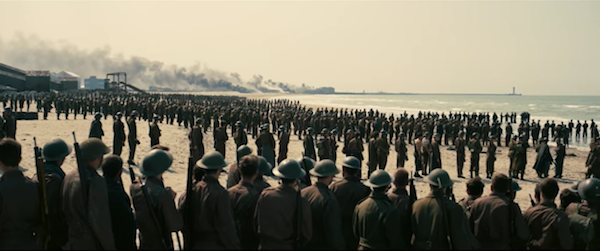
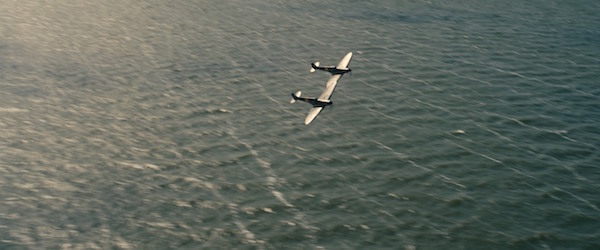
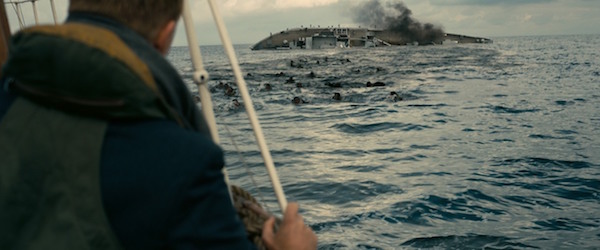
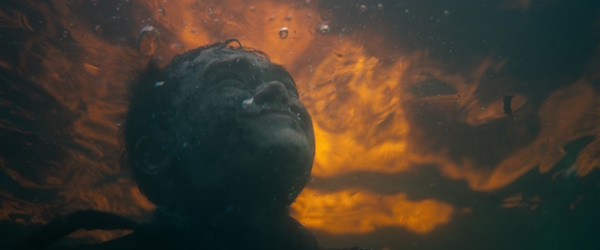
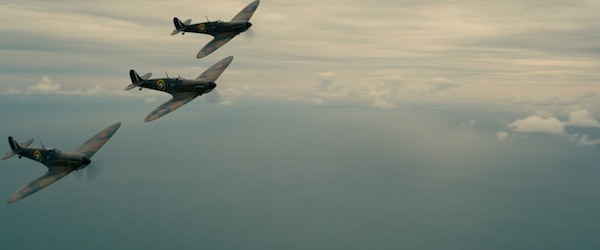





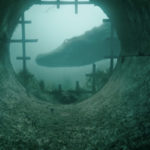

Leave a Reply